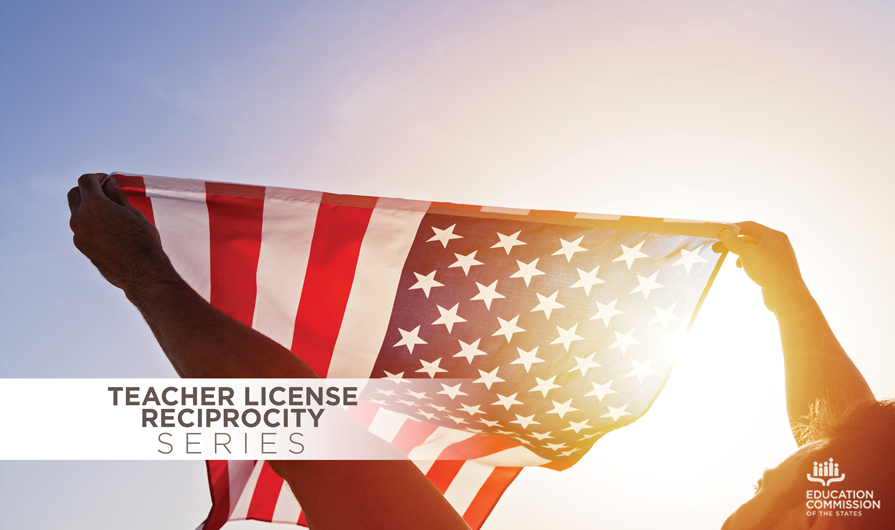This post comes from Marcus Beauregard, director of the Defense-State Liaison Office. Views expressed in guest posts are those of the author.
According to written testimony from the U.S. Department of Defense, “Barriers to the transfer and acceptance of certifications and licenses that occur when state rules differ can have a dramatic and negative effect on the financial well-being of military families… Removing these barriers, creating reciprocity in licensing requirements, and facilitating placement opportunities can help a military family’s financial stability, speed the assimilation of the family into its new location, and create a desirable new employee pool for a state (especially in education and health care).”
The U.S. Department of Defense engages states through the Defense-State Liaison Office (DSLO) to consider improvements to teacher licensure and certification for military spouses. After working with states for five years, more than 45 states have enacted bills featuring license endorsement, temporary licensing and expedited applications; however, less than 10 states have included teachers in their new laws. Before addressing further changes to teacher licensure and certification, DSLO worked with Education Commission of the States to assess the status of existing portability laws, policies and practices.
Most states have provisional certificates for six months to a year to allow a certified teacher from another state an opportunity to find employment. Many states have established practices to expedite adjudication of applications. Obtaining a provisional certificate typically requires school transcripts, test scores, certificate verification from the other state and a background check. Additionally, almost all states have entered into agreements with other states; however, these agreements often require additional testing and coursework, which can be time-consuming, costly and can affect job opportunities.
For the most part, existing processes have proven inadequate to accommodate military spouses, who move on an average of every three years. To better accommodate them, DSLO asked states to maximize flexibility when accepting existing standard certificates; treat alternative licensure from another state as equivalent to alternative licensure in the new state; and/or establish special temporary certificates that last the duration of a military assignment. Additionally, DSLO asked states to consider expediting applications from military spouses and waiving cumbersome deadlines and other requirements.
Overall, 32 states have engaged in one or more of these approaches. DSLO selects best practices developed by states to share with other states. Currently, DSLO is sharing policies and practices developed by Arizona, Iowa and Nevada. Arizona applies their practices to all teachers, allowing them to receive a certificate based on a current license in good standing in another state and a fingerprint background check. Iowa provides military spouses a three-year provisional license based on a current license in good standing in another state too. Nevada accepts equivalent alternative licensing from other states.
In December 2019, the U.S. Secretary of Defense released a report that further clarified the desired outcome for license reciprocity: issue a military spouse a license within 30 days of application that requires minimal initial documentation. As stated in the report, preference is given to approaches which further limit the time and expense involved in license transfer. Ultimately, the U.S. Department of Defense asks states to consider full reciprocity, which is achievable through interstate compacts for occupational licensure.




